JIRA DB Connector
Set-Up Instructions
Task 1 – Create a Database Collection in SearchBlox
Log in to the SearchBlox Server, then click Add Collection button on the SearchBlox admin home screen.
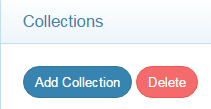
Next, name the collection and select Database Collection as the Collection Type.
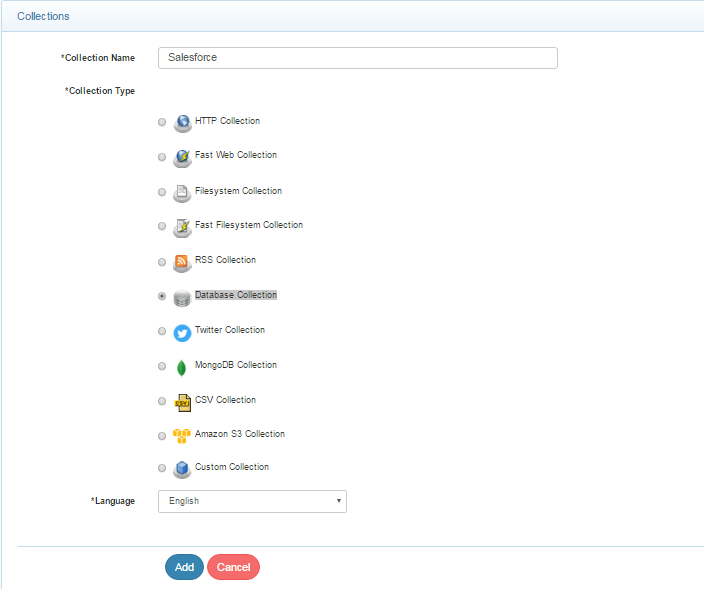
Specify the language or click the “Add” button. This will add a database collection to the SearchBlox server.
Task 2 – Giving SQL Query
To fetch data from JIRA, a query must be provided. The query format is shown here.
SELECT as uid , as title, as content FROM LIMIT 100
Some of the commonly used tables and queries in JIRA are:
SELECT * FROM Project
SELECT * FROM Comments
SELECT * FROM Issues
For more data tables that can be indexed from JIRA, use the following link:
http://cdn.cdata.com/help/BJB/jdbc/pg_alltables.htm
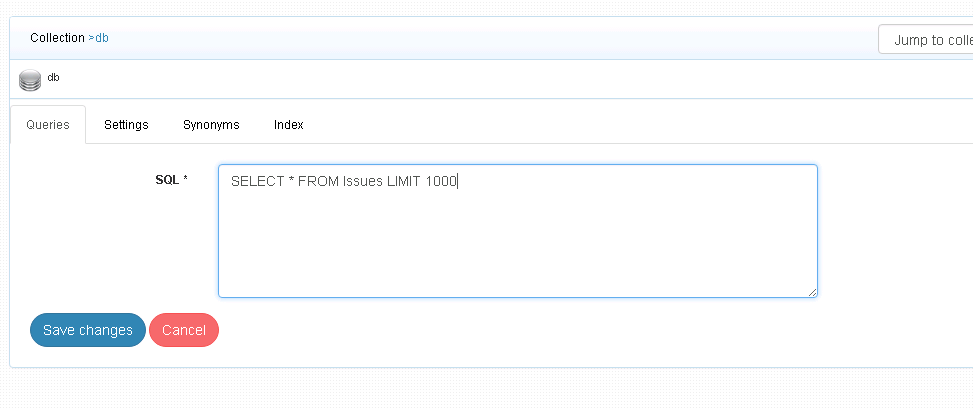
If you have more than 100 entries in a table, specify the number of documents to be indexed by giving LIMIT value in the query. For example:
SELECT * FROM Account LIMIT 1000
Otherwise, a minimum of 50 rows will be indexed.
Task 3 – Database Collection Settings
Select database type as JIRA from the dropdown menu.
Enter the database URL string in the format as shown here:
jdbc:jira:User=[email protected];Password=password;Url=https://yoursite.atlassian.net;
You will receive an email with the username, password and security token, which should be entered into the string.
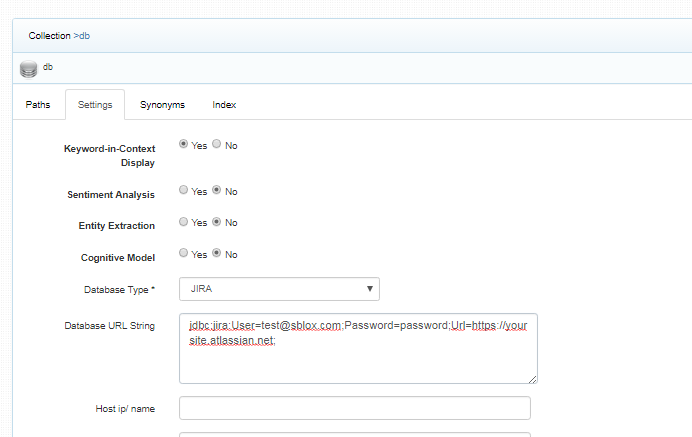
Save the settings.
Check the settings by clicking Test Database Collection. The database connection has to be successful for the indexing to work.
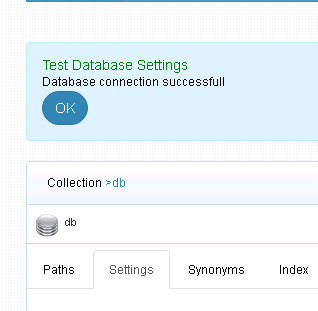
Task 5 – Index and Search
Start indexing from the Index tab or dashboard.
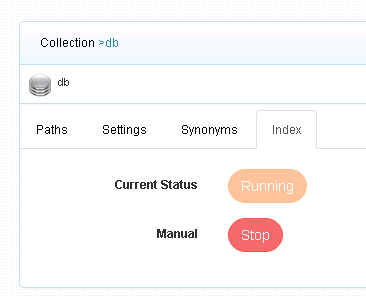
After reaching the maximum number of documents, if continuous indexing is not required, click stop.
Search results in regular search and faceted search are shown as follows:
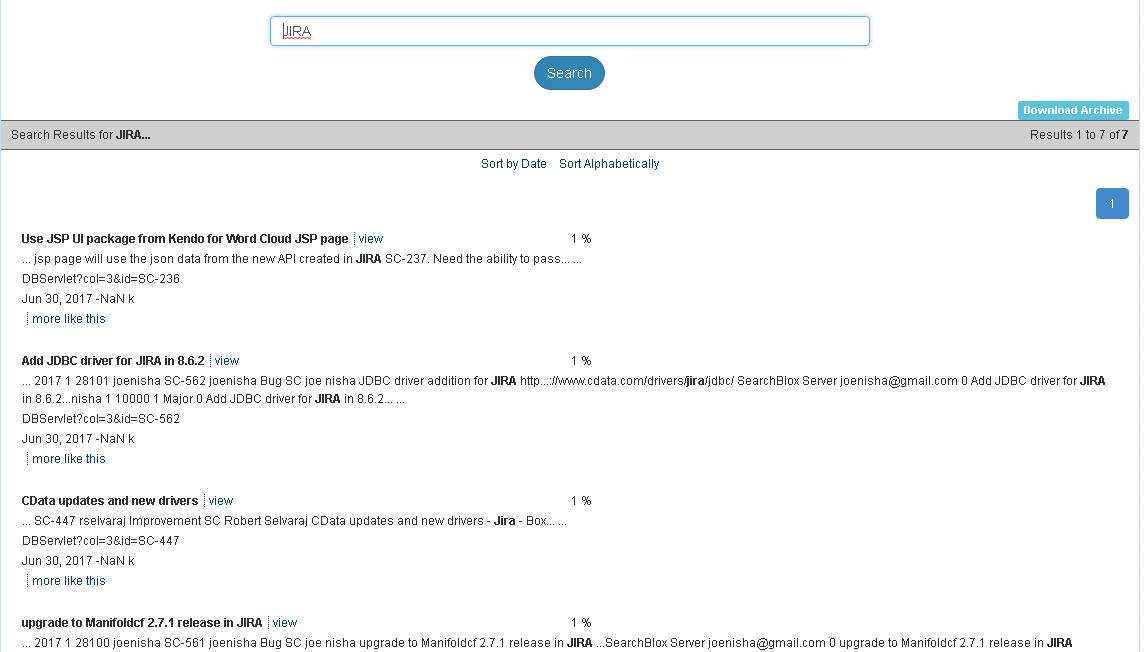
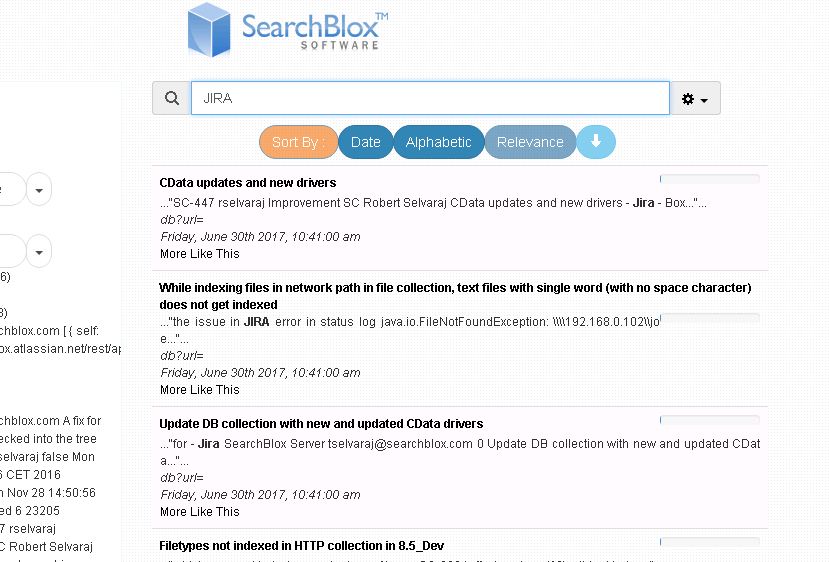
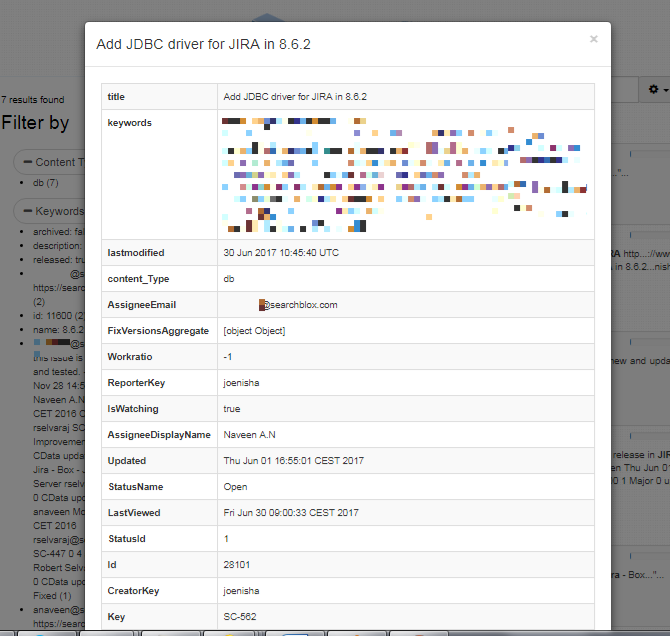
Task 6 – Viewing Search Result in Kibana
Indexed content from JIRA can be visualized using Kibana.
The following example uses the maximum number of fields available in the data table account. The query to provide is
SELECT * FROM Issues LIMIT 1000
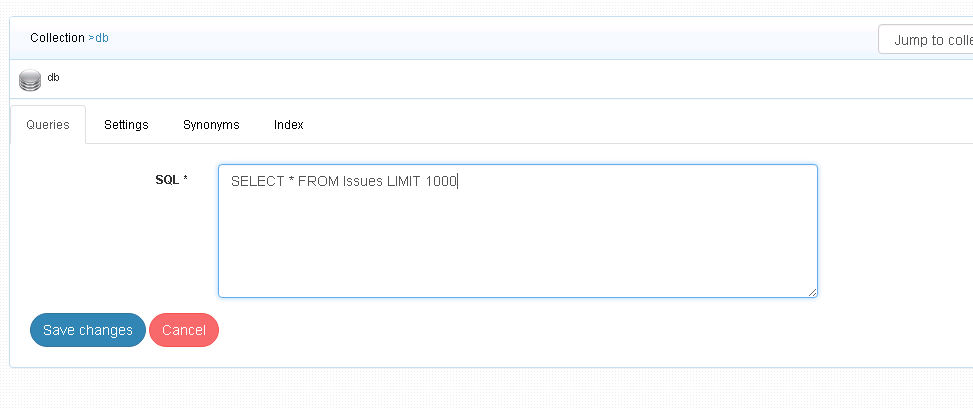
Steps in Kibana
1. Start Kibana
How to start Kibana?
2. Add the collection ID
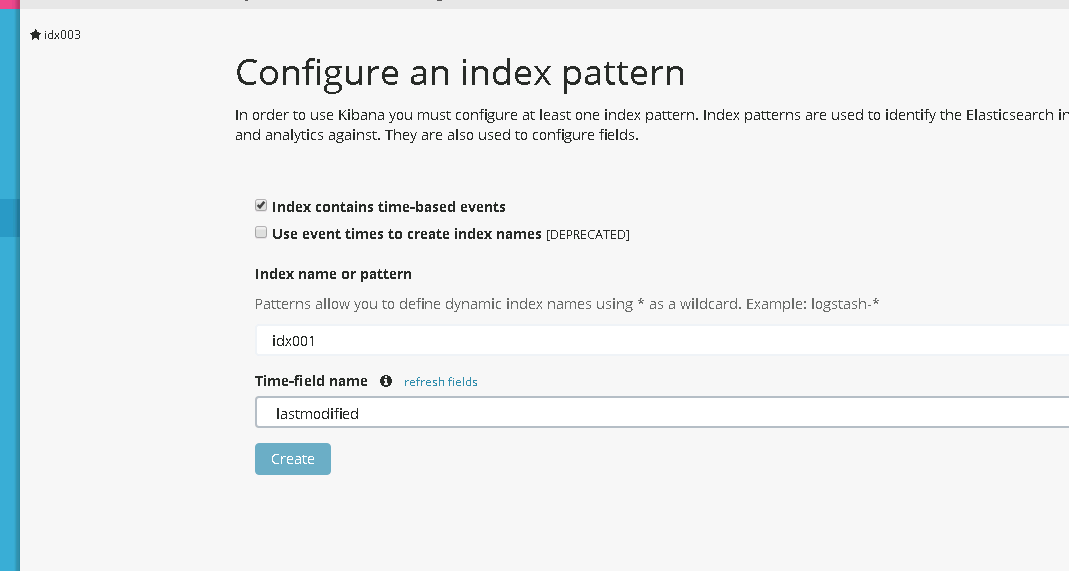
3. After adding the index, you can view the fields mapped.
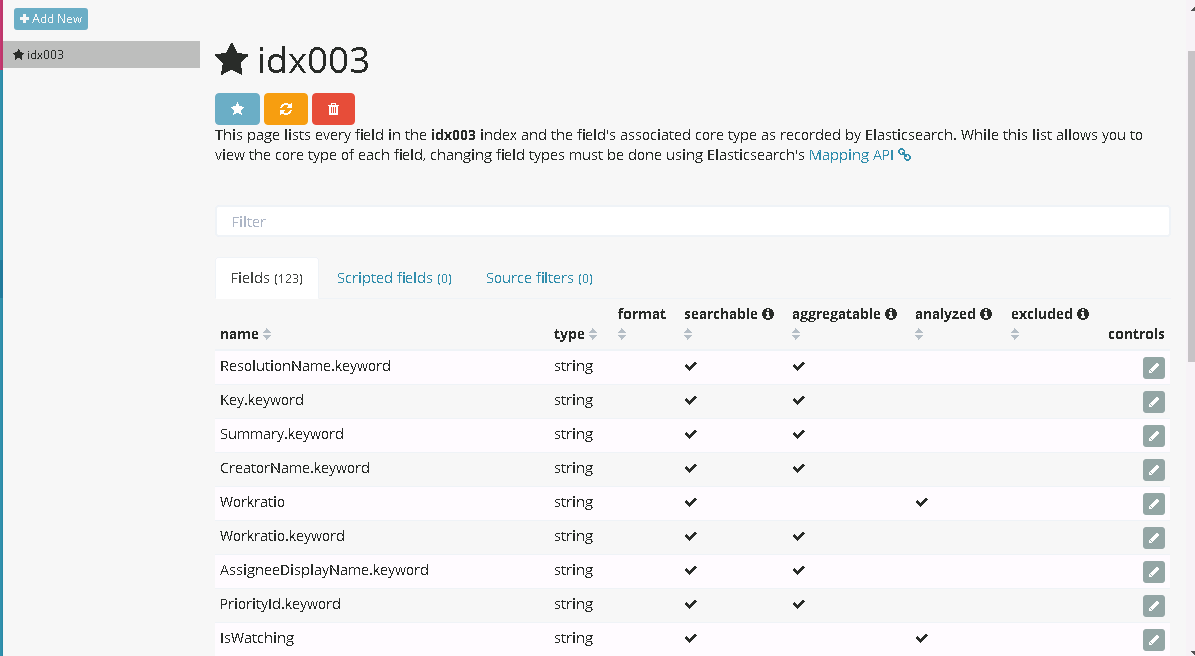
4. Create visualizations by following the steps listed in the reference link, provided in the preceding step one.
Sample visualization generated for JIRA data indexed in JIRA:
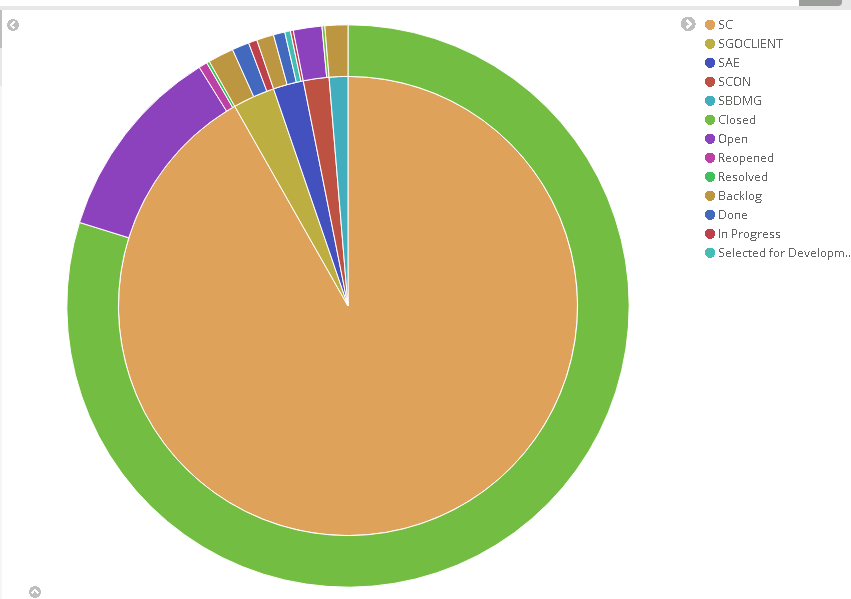
Updated about 5 years ago
